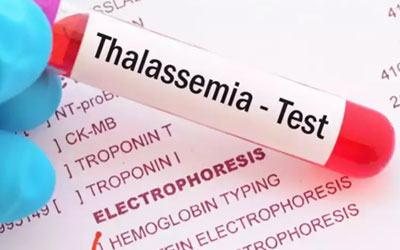 Thalassemia causes a considerable health problem in India that significantly contributes to morbidity and mortality. Many studies have reported that in India there is an overall prevalence of around 75 to 100 thousand new cases of Thalassemia each year. The highest prevalence of Beta- Thalassemia traits in different major states of India have shown about 7.55% cases in Gujarat, 6.5% cases in Punjab, 5.5% in Delhi, and 4.2% in Calcutta. As per current Indian scenario, at least 14.2 Million units of blood are required per year. A total therapy cost of a child per year is reported around Rs 2 lakhs per year.
Thalassemia causes a considerable health problem in India that significantly contributes to morbidity and mortality. Many studies have reported that in India there is an overall prevalence of around 75 to 100 thousand new cases of Thalassemia each year. The highest prevalence of Beta- Thalassemia traits in different major states of India have shown about 7.55% cases in Gujarat, 6.5% cases in Punjab, 5.5% in Delhi, and 4.2% in Calcutta. As per current Indian scenario, at least 14.2 Million units of blood are required per year. A total therapy cost of a child per year is reported around Rs 2 lakhs per year.
Thalassemia is known as a genetic blood disorder in which a patient is unable to produce enough Red Blood Cells or produce an abnormal form of hemoglobin. Such patients need to be supplemented with regular RBC transfusions every 2-3 weeks to survive and stay healthy. Thalassemia patients are more prone to suffer from anemia, leaving them fatigued. If both of parents are suffering from thalassemia, then they have a greater chance of inheriting a more serious form of Thalassemia to their children. Therefore prevention is the best remedy to control the further prevalence of this disease.
Thalassemia has mainly three types- alpha thalassemia, beta thalassemia, and thalassemia minor. Beta-thalassemia is the main causative type.
The alpha thalassemia occurs when one or more of the four alpha-globin genes located on chromosome 16 that help to produce hemoglobin are missing or damaged. Alpha Thalassemia has following sub-types:
Beta thalassemia usually occurs when the body is unable to produce beta globin. It comes in two serious subtypes, such as- Thalassemia major and Thalassemia intermedia.
A person should go for getting tested if one of his/her parents or relative has some kind of Thalassemia.
Following factors may increase the risk of thalassemia such as:
Family history: Thalassemia can be genetically transferred from parents to children. Therefore, a person has a family history of thalassemia, may have an increased risk to get affected with the condition.
Geographical Inheritance: Thalassemia mostly affects people of African-Americans, Mediterranean, and Southeast Asian ancestry.
Overloading of Iron: Thalassemia patients can store too much iron in their bodies, either due to the disease or from repeated blood transfusions. This excessive storage of iron is harmful to heart, liver and endocrine system.
Infection: Thalassemia patients have a greater risk of getting affected with an infection, especially when their spleen is removed.
The treatment depends on the severity and type of disease involved.Various treatments options include:
While receiving a blood transfusion, patients may also require chelation therapy. A chelation therapy generally involves injecting a measured dose of a chemical that binds to iron and helps to excrete extra iron from your body.
Thalassemia is hard to treat genetic condition, but it can be easily controlled and prevented to spread further. So, it should be the collective and moral responsibility of all Indian people to give their best cooperation to prevent and control Thalassemia.
So, if you are about to be married or just married, you should visit us at Shah Hospital to get yourself tested for Thalassemia.
Your current wise decision can give you happiness for the whole life.

